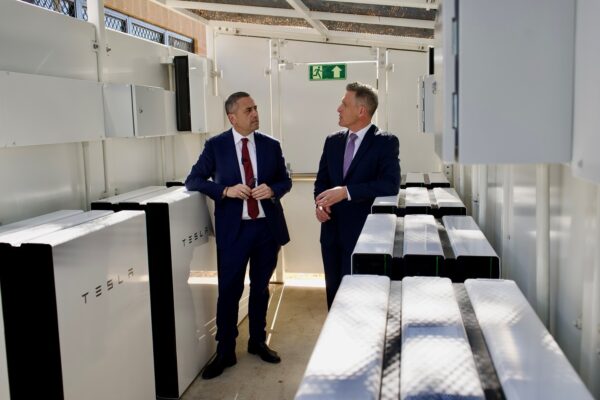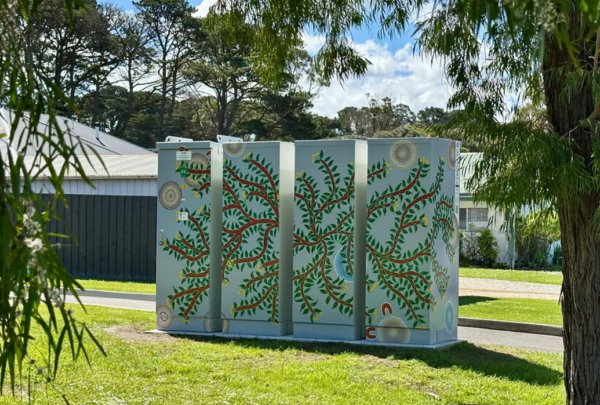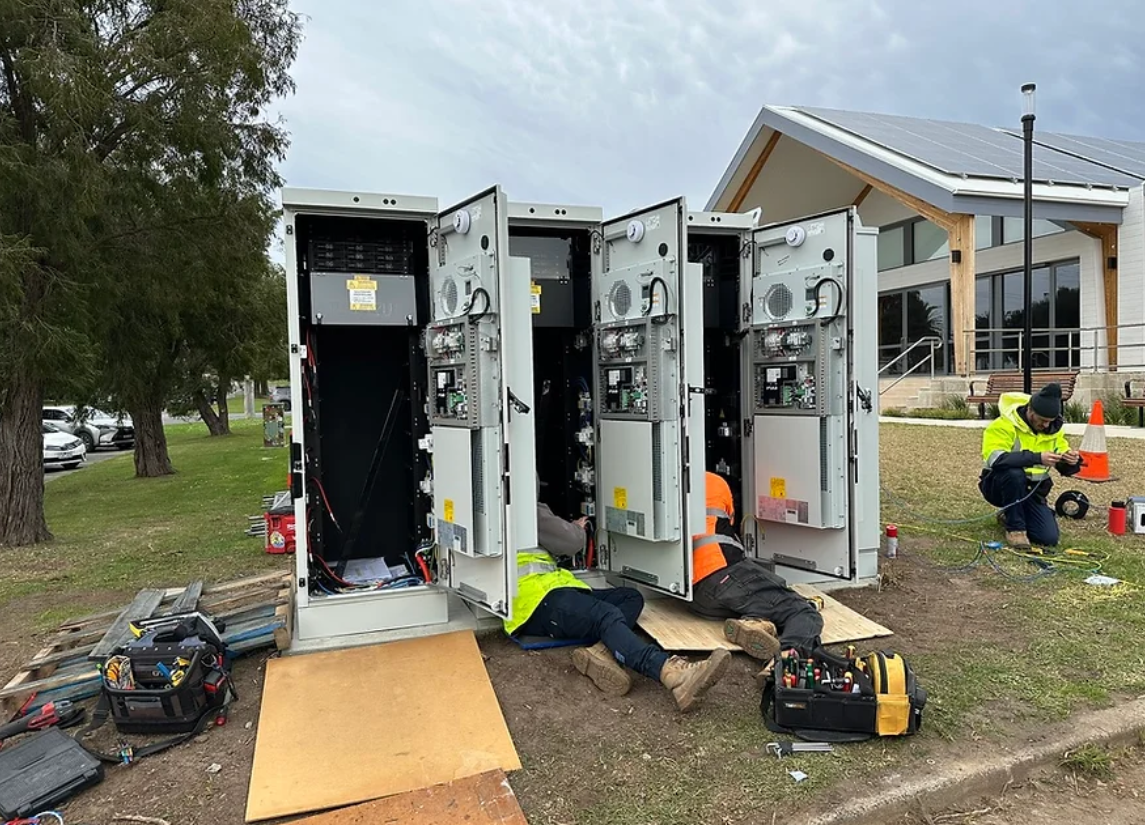Victoria and South Australia’s (SA) newest community battery energy storage system projects, deployed as part of the federal government’s Community Batteries for Household Solar (CBHS) program, providing an aggregated storage capacity of 420 kW / 1,170 kWh.
The latest community battery energy storage systems (BESS) deployed as part of the initiative include two 150 kW / 405 kWh batteries installed by the SA Department for Energy and Mining in the Adelaide suburbs of Edwardstown and Magill, and a 120 kW / 360 kWh battery that has been commissioned in the town of Flinders on Victoria’s Mornington Peninsula.
The $200 million (USD 132.5 million) CBHS program aims to support the deployment of 420 network connected batteries across Australia to enable more rooftop PV installations, increase access to renewable energy, and reduce pressure on the electricity grid.
The scheme is being delivered by two agencies, with the federal Department of Industry, Science and Resources offering a minimum grant of $100,000 for 58 batteries and the Australian Renewable Energy Agency (ARENA) which has conditionally approved $143 million to support the roll out of up to 370 community batteries.
One in three Australian households have already embraced rooftop solar and are accessing cleaner and cheaper energy, but less than one in 40 households has battery storage.
Federal Energy Minister Chris Bowen said the community battery initiative is about empowering communities to share in the renewable energy transformation, whether they have rooftop solar or not.
“The rollout of community batteries is vital to making sure that everyone can share the benefits of renewable energy by storing rooftop solar energy during the day and dispatching at night where it’s needed,” he said.

Image: SA government
SA Energy Minister Tom Koutsantonis said the two 405 kWh community batteries installed in Edwardstown and Magill – the first in a fleet of community batteries planned for installation across metropolitan and regional SA – will extend the benefits of solar and battery technologies to at least 600 households.
Housing SA tenants living near the community batteries will be invited to join SA’s virtual power plant (VPP), until the target number of 300 participant households is reached at each location. The batteries will be operated by Tesla, which manages the SA VPP.
“We are proud to have partnered with the federal government and industry in delivering the first two community batteries at Edwardstown and Magill,” Koutsantonis said.
“This partnership means renters living in homes that can’t host solar PV or residential battery storage will be able to share in the benefits offered by renewable energy technologies.”
“I’m looking forward to working with public and private sector partners to build on this achievement and get underway with the next phase in implementing our vision.”

Image: Flinders Zero Carbon Community
In Victoria, Australia’s first non-network owned community battery to be delivered under the CBHS program has been launched in the town of Flinders, about 95 kilometres south of Melbourne.
The 120 kW / 360 kWh battery is owned by the Mornington Peninsula Shire Council which secured $500,000 in federal funding following a campaign led by the Flinders Zero Carbon Community (FZCC).
Council said the battery is capable of supporting up to 100 households and will be used to soak up locally generated solar, help stabilise the local grid, and create new capacity for more rooftop solar in the area.
“This community battery allows us all to share benefits across all properties, storing and redistributing excess solar energy, as well as lower emissions from electricity use,” the council said.
This content is protected by copyright and may not be reused. If you want to cooperate with us and would like to reuse some of our content, please contact: editors@pv-magazine.com.








3 comments
By submitting this form you agree to pv magazine using your data for the purposes of publishing your comment.
Your personal data will only be disclosed or otherwise transmitted to third parties for the purposes of spam filtering or if this is necessary for technical maintenance of the website. Any other transfer to third parties will not take place unless this is justified on the basis of applicable data protection regulations or if pv magazine is legally obliged to do so.
You may revoke this consent at any time with effect for the future, in which case your personal data will be deleted immediately. Otherwise, your data will be deleted if pv magazine has processed your request or the purpose of data storage is fulfilled.
Further information on data privacy can be found in our Data Protection Policy.